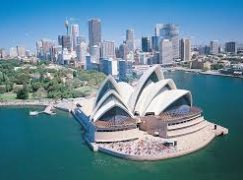An insider’s view of Opera Australia’s woes
OperaFrom an informed slippedisc.com reader:
Without wanting to deny the obvious managerial issues during Davies’ tenure at OA (summarised in some of the other comments, some entirely valid observations, but also some sexism/ignorance on display), this has got more to do with her programming ambitions for the company, her commitment new operatic writing, and her strategy for developing audience taste in Australia. Davies’ first season was critically fantastically well received, and was a statement of intent: Puccini, Mozart (great), but also Brett Dean’s ‘Hamlet’ in Sydney and Missy Mazzoli’s ‘Breaking the Waves’ in Melbourne, two major critical successes for the company, two operas of enormous international significance and renown, and yet two box office flops in Australia. One has to wonder: is it that those pieces are bad, uninteresting, unengaging, unmoving, overly provocative, ugly, intellectually elitist or whatever criticism could be levelled at them, or is it that the company doesn’t know how to share them with an Australian audience that has been undernourished, and abandoned by real artistic leadership as the art form continues to develop elsewhere.
Perhaps Davies went too hard too fast, but unfortunately there are loud voices in Australia that fundamentally disagree with the entire project on the grounds of either funding or an absence of ambition to be a part of the development of the art form. Opera in Australia is dreadfully funded by international standards, and unfortunately the company is expected to wash its own face in a way that few national companies are expected to do: in Europe there is major state funding, and in the US there is a highly developed philanthropic model. In Australia, contributions from those sources are modest, and so ticket sales are expected to fund the company. The catch is that tickets rightly have to remain affordable, and so there is a model which involves staging musicals to make money with which to fund the (much more expensive) operatic work – a policy which pre-dates Davies. But gradually it seems the creative ambitions of the operatic work are being eroded in order to run the company as a whole as a commercial enterprise. The question is, what does Australia want its national company to do? Perform 30,000 shows of a clapped-out production of La Boheme for tourists off a cruise ship parked up outside the Sydney Opera House that will never come back, or bring perhaps the most internationally-significant Australian opera ever written to Sydney for home audiences to experience. The reality is that as an outsider, Davies’ understands and believes in the power, significance and value of the latter to Australian culture, but very few within the company actually do. She even planned to present ‘Hamlet’ to Melbourne audiences, but that was quickly put to bed. Where’s the ambition for Australian culture, pride in Australian artists, belief in the value and necessity of opera? I was in Sydney to see Hamlet and was genuinely saddened to see the flags around Circular Quay alternating Cosi/Tosca/Cosi/Tosca, not a single invitation to see Hamlet. Were the marketing department embarrassed to be doing it!? If you don’t believe in opera, get another job.
So personally, for all her faults, I think it’s a great pity she’s gone. And I think it’s very important that Australian artists understand that this is the conversation that is happening within OA, not only about new works but about any opera which is not profitable. Time to participate in this conversation if you care about the future of the art form.






Comments